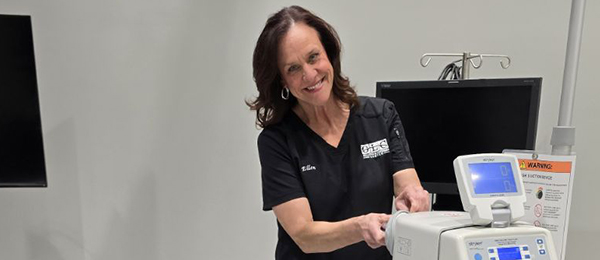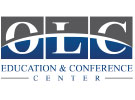
Mastering Medical Meeting Planning: Expert Insights from the OLC Education & Conference Center
Organizing a medical education event is a complex, multifaceted task that requires meticulous planning and coordination. Every detail, from securing top-tier faculty to managing intricate logistics, plays a crucial role in ensuring a successful event. The OLC, Chicago’s premier medical events destination, recently interviewed our Lab Manager, Ellen Kaimakis, HMCC, to discuss the essential elements that contribute to the success of medical meetings and hands-on surgical labs.
As the future of medical events evolves, integrating advanced technologies will become increasingly essential. The ability to provide immersive, hands-on experiences and seamless virtual participation is paramount for maintaining engagement and delivering high-quality experiences. Planning your next medical event? Our guide will have you covered:
1. Pre-Event Preparation
Comprehensive Request Forms
A well-structured request form is the cornerstone of successful event planning. Detailed request forms guide clients through their needs, even if they are unfamiliar with specific requirements. Ellen emphasized that these forms often prevent critical oversights – and are often overlooked by less experienced vendors.
Key Questions:
- What type of equipment and specimens are required for your event?
- Are there any specific parameters or restrictions for specimens, such as gender, BMI, or absence of hardware?
- Will the event organizer be shipping in equipment or bringing it personally?
- How many stations will be needed, and what is the expected number of participants?
- Are there any specific dietary or accessibility requirements for attendees?
- What are the technical requirements for audiovisual equipment and broadcasting capabilities?
Detailed Specimen Requests
Understanding the exact needs for specimens is absolutely crucial. Miscommunication can lead to significant issues during the event, as different professionals might have varying interpretations of the same requirement. Receiving a specimen with a hip implant instead of without can cause quite a significant disruption. Unsure about what’s needed? You can count on the OLC concierge team to help.
Key Questions:
- What are the specific requirements for the specimen (e.g., male/female, BMI, no hardware)?
- Are there any procedural specifics that dictate the type of specimen needed (e.g., full leg for hip replacement, mid femur to mid tibia for arthroscopy)?
- Do you have a preferred specimen provider, and can they handle the required volume?
- Does your event vendor provide assistance in managing these tasks?
Checklists and Extra Preparations
Having thorough checklists and always ordering extra to mitigate unforeseen issues is essential. Without adequate preparation, a single missing item can disrupt the entire event. For instance, running out of equipment mid-event can cause significant delays and negative experiences – especially for attendees on a tight schedule.
Key Questions to Ask:
- Have all necessary items been accounted for in the checklist?
- Is there an adequate number of extra specimens and equipment to handle any last-minute problems?
- Are backup providers identified in case of emergencies?
- Does the event space have any recommendations for these issues?
2. Handling Crisis Situations
Quick Thinking and Reliable Networks
In crisis scenarios, such as discovering a missing or unsuitable specimen, quick thinking and a reliable network are invaluable. Leveraging local resources and established relationships can resolve critical shortages swiftly. New to the space? Make sure you can rely on your event space or vendor for on-the-ground problem-solving.
A last-minute call to a local provider can save an event.
Key Questions:
- What is the backup plan if the required specimens are not available?
- Who are the local or alternative providers that can be contacted in case of emergencies?
- Can the event space or vendor assist with this?
Effective Communication and Coordination
Effective communication with all stakeholders is crucial. This is especially true when it comes to the venue and corresponding lab team that’s hosting your event. A seasoned lab manager will know the exact status of your shipments, which can prevent last-minute panic and confusion.
Key Questions:
- Have all stakeholders been informed about the status of their shipments and specimens?
- Is there a clear communication plan in place for handling unexpected issues by the venue?
3. Logistics and On-Site Management
Venues & Managing Competing Events
The medical events world is surprisingly small, with little elbow room – especially during peak months. Venues often host multiple clients – so it’s important that you choose a space that maintains confidentiality and respects your designated area. Utilizing physical barriers and scheduling strategies to keep groups separate is key.
Key Questions:
- How will the venue manage the schedule to avoid overlaps between competing clients?
- What physical arrangements (e.g., dividers, separate entrances) will ensure confidentiality?
- How will the venue coordinate different groups’ movements to avoid conflicts?
Detailed Agenda Planning
Reviewing and reconciling your agenda with the venue’s helps with planning transitions between sessions and managing space efficiently. This includes coordinating different groups’ movements to avoid conflicts.
Key Questions:
- What are the key timings and transitions in your agenda?
- How will the venue be organized to facilitate smooth transitions between different groups?
- What measures are in place to ensure seamless transitions from lectures to labs?
4. Post-Event Follow-Up and Stewardship
Respect and Dignity for Specimens
Maintaining dignity and respect for specimens is a crucial aspect of medical event planning. Your venue and vendor must properly handle the chain of custody and demonstrate a commitment to ethical standards.
Key Questions:
- Who will be responsible for the specimens before, during, and after the event?
- Are all specimen providers and handlers accredited and compliant with legal requirements?
- What protocols are in place to maintain the dignity and integrity of the specimens?
- Does the venue have a preferred vendor and protocol?
Continuous Improvement
Every event offers learning opportunities. Collecting feedback from attendees and staff helps in refining processes and improving future events.
Key Questions:
- What feedback did the attendees provide about the event?
- What areas can be improved based on the feedback received?
- How can post-event communication be utilized to build long-term client relationships?
- Was there any firefighting during the event and how was it handled?
5. Enhancing Event Impact
Outstanding Variables
The success of a medical event heavily relies on choosing a venue with experienced staff. An efficient and well-coordinated lab team plays a crucial role in managing high-level responsibilities while ensuring the event runs smoothly.
Key Questions:
- How experienced and organized is the venue team?
- Are there specific team dynamics or coordination strategies that could enhance the event?
- What unique strengths does the venue bring to the planning process?
New Technology and Hands-On Opportunities
Events that feature new technologies, such as robotics, often generate excitement and positive feedback.
Key Questions:
- Are there opportunities to showcase new technologies or techniques?
- Does the venue have any innovative elements they could suggest?
- How can hands-on experiences be integrated into the event?
Whether it’s through detailed pre-event preparations, efficient crisis management, or respectful stewardship, every step contributes to the overall excellence of your event. The OLC, with its extensive facilities and expertise, continues to set the standard for excellence in medical event planning, hosting numerous first-of-their-kind events and advancing the integration of innovative technologies.
Contact us today to start planning your next course.

